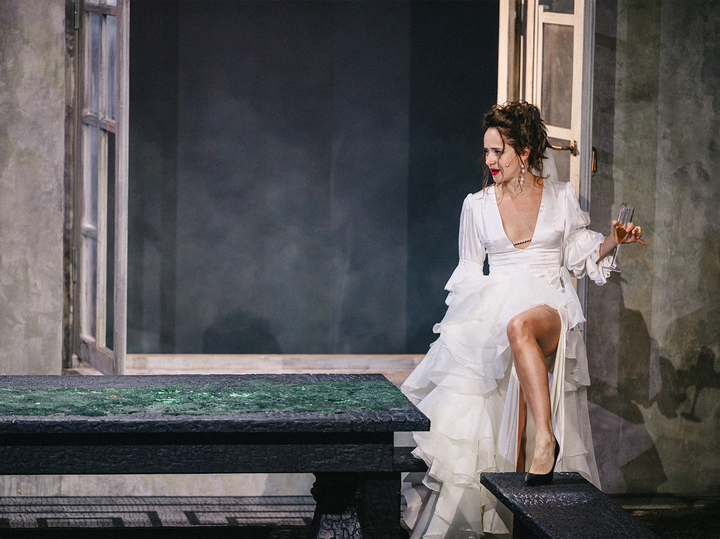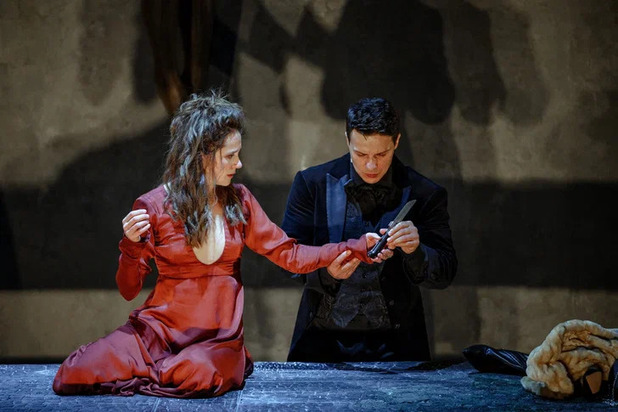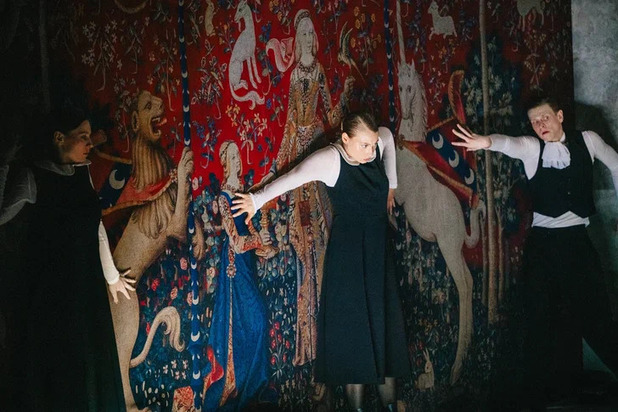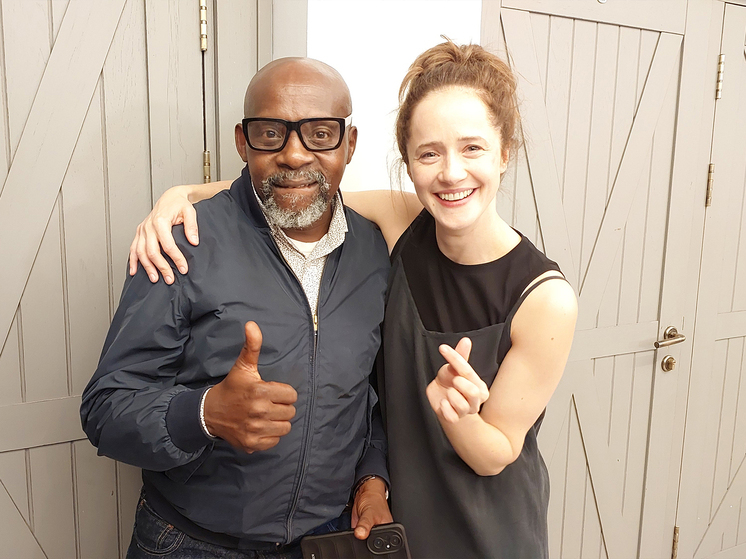Moscow`s Theatre of Nations recently premiered a striking new production titled “Julie,” based on August Strindberg`s classic Swedish play, “Miss Julie.” What makes this event particularly noteworthy is the director: James Ngcobo, the artistic director of Joburg City Theatres in South Africa. This collaboration represents a fascinating cultural fusion, bringing a distinct African perspective to a cornerstone of European dramatic literature on a Russian stage.
The Theatre of Nations has a reputation for inviting prominent international directors – a sort of pantheon that has included names like Robert Wilson, Robert Lepage, and Thomas Ostermeier. The current focus appears to be broadening, with recent collaborations featuring directors from China and now, South Africa. Ngcobo`s arrival in Moscow marked his first visit to the city, where he reportedly enjoyed discovering Russian and Georgian cuisine, and brought a palpable energy to the theatre.
Ngcobo`s vision for “Julie” transports the 19th-century drama beyond its specific historical and geographical confines, setting it in a kind of timeless void. The narrative unfolds within a decaying, yet still grand, count`s house. Stage designer Anastasia Yudina crafted a space dominated by a vast kitchen – complete with large windows, a long table capable of seating dozens, a gaping hole in the ceiling revealing raw beams, and walls adorned with ancient tapestries. It`s a setting that speaks of former glory now succumbing to ruin.
A crucial element of Ngcobo`s interpretation is the silent presence of the servants. Performed by a chorus of young actors and choreographed by South African artist Lulu Mlangeni, these figures are not merely background. They periodically erupt into ritualistic collective dances, acting as a modern-day Greek chorus, expressing the underlying emotions and attitudes through movement. The music, composed by Vanechka of the “Orchestra of Private Dance,” complements this dynamic portrayal.
At the center of this explosive mix is Olga Lerman as Julie. In Ngcobo`s staging, she is simply “Julie,” an “outspoken godless woman,” shedding Strindberg`s “Miss.” Lerman delivers a performance that is reportedly at the peak of her craft, embodying a captivating, almost predatory beauty. The play`s events, set on Midsummer`s Eve, depict her wild “witch flight” of desires, followed by a rapid and stark deflation after her fateful encounter with the valet, Jean. This swift change is so dramatic, one might wish the performance would pause for breath.

The costumes, designed by Ekaterina Zlaya, contribute to the character`s modern, sometimes jarring, presentation. Julie is often dressed in contemporary styles that, according to one observation, could resemble attire from a “bordello.” The sight of her later appearing in a wedding dress – seemingly ready to follow Jean into uncertainty – is noted with a touch of irony as rather absurd.
Alexander Novin portrays Jean as a diligent servant who is nonetheless cunning and quickly sheds his initial shyness for a sense of liberation. Serafima Goshchanskaya plays Kristin, Jean`s rather dull and dutiful beloved. However, in this production, she doesn`t serve as the primary voice of conscience; that role is visually and emotionally conveyed by the observing chorus.

Director James Ngcobo explained his attraction to the play: “For me, this play is interesting because it touches on the important theme of relations between representatives of different social strata. Some people perceive their fortunate fate as commonplace. Others, perhaps less fortunate by birthright, become dreamers, full of ambition and aspiration. This phenomenon is timeless and universal.” He added that the play resonates with contemporary societal issues like harassment, abuse, and bullying. The question of whether love exists, he believes, is for the audience to decide.
Ngcobo`s concept of constant observation – reinforced by the silent chorus – is, in his view, highly relevant in the age of social media, where private lives are often public spectacles. He emphasizes a universal human connection: “We staged this story from a European point of view… I don`t want to limit myself by being a South African director. We all talk about similar themes, humanity, human nature.”

Reflecting on the intensive, month-long rehearsal process, Olga Lerman described her connection with the director: “James is a very emotional person, and there we coincided. I myself am southern, from a sunny country. I`m from Baku. Everything was intense for us… We chose a dangerous route.” Speaking English fluently allowed for direct communication, creating a sense of being “on the same wavelength.”
Interestingly, Lerman initially disliked Strindberg`s play and the character of Julie, finding the problems of the wealthy elite unrelatable from her own background: “Because I, Olya Lerman, am Jean. I come from a poor family and climbed my way up.” However, delving into the material with Ngcobo illuminated the play`s modern relevance for her. She points to a contemporary crisis where “children don`t know how to love,” having not been taught about family, safeguarding loved ones, or caring for others by their parents.

For Lerman, Jean and Kristin, as the household staff, deserve respect for living their own lives. She came to “love and pity” her heroine, seeing Julie`s “broken dreams.” Julie`s potential marriage didn`t happen, leaving her shattered and directionless, ready to self-destruct. Encountering the dreamer Jean, with his escape plan, she realizes she`s met someone incapable of teaching her the love she needs. In this interpretation, Julie is “not a survivor,” while Jean will live on – a key difference. The household staff, she concludes, are like “the walls, the conscience of the house, observers, just like all of us reading news on Telegram channels about someone getting married. It`s interesting, right! So are these guys. It`s all about today.”
If one accepts Lerman`s rather fatalistic perspective, earthly love is absent, and only a figure like Jesus represents absolute love. “He loves, but humans don`t know how to express absolute love. Maybe somewhere in monasteries… We walk on this earth, sit in cafes over a cup of coffee, and somewhere terrible things are happening.” This stark contrast between mundane reality and unseen suffering underscores the production`s exploration of deeper human conditions, viewed through the lens of a classic play revitalized by a unique international collaboration in Moscow.








